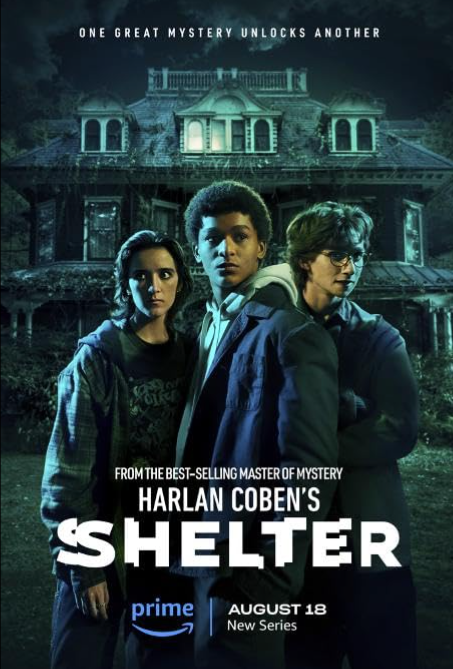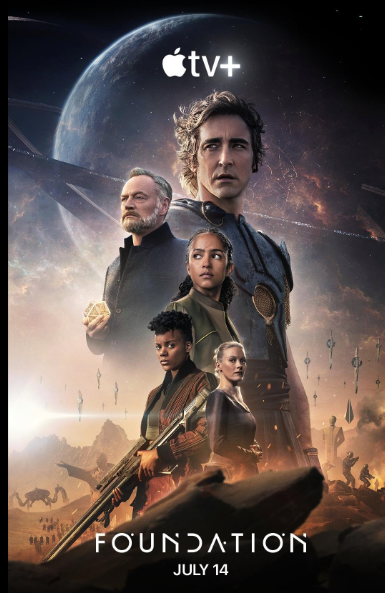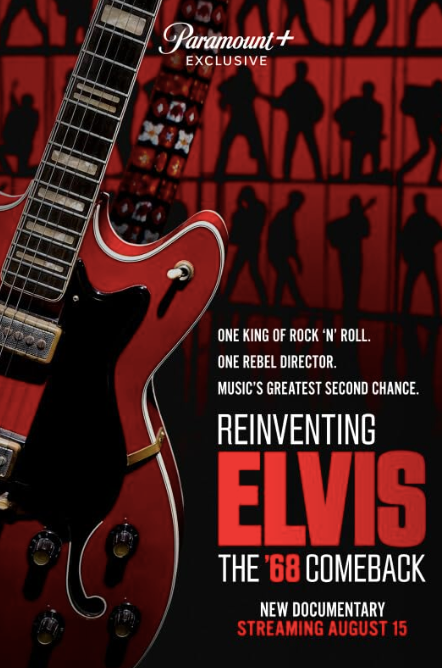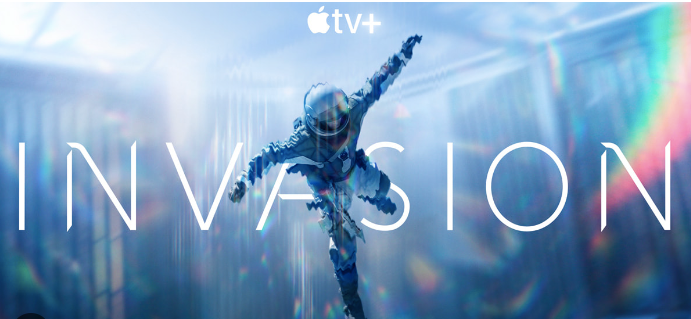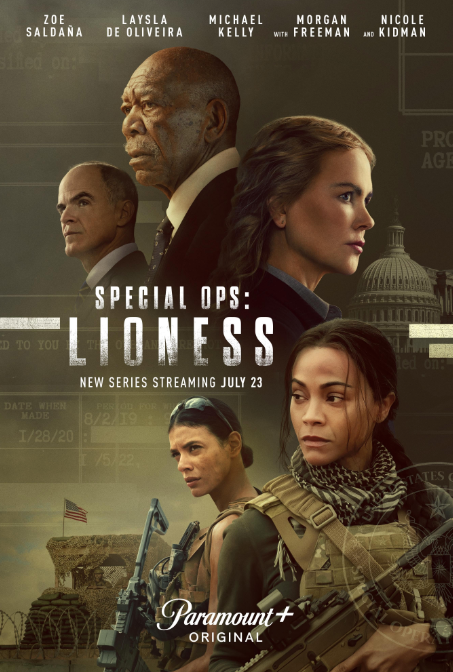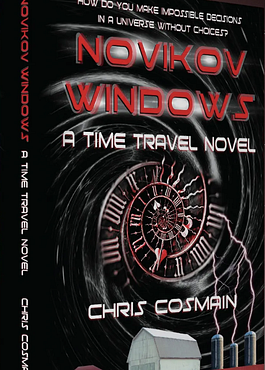
I'm going to here review a a very recently published, nearly 500-page time travel novel -- Chris Cosmain's Novikov Windows: A Time Travel Novel (that's the sub-title) -- I've just read, in two days. That should give you an idea of how compelling I think this novel is.
Because of that, I'm not going to give you any big spoilers in this review. If you haven't yet read this novel, and doubt or would like further elaboration on any of the points I make below, my best advice is: read the novel. (You can buy a copy over here.)
Now as to the narrative. It has a 19th-century flavor. In fact, important parts of the story take place back then. But more than that, its style and pace feel as if it could have been written by H. G. Wells. And it combines that ambience with all the mod-cons: 3-D printing, DNA and junk DNA, computers, and rockets all play a role.
I've said many times that I can't enjoy or take seriously any time-travel tale which ignores the paradoxes that time travel engenders, and gives the intellect (or at least mine) so much to deal with. The one that comes up most often is the so-called grandfather paradox -- if I go back in time and accidentally kill my grandfather, before he sleeps with my grandmother, I wouldn't exist, so how have I gone back in time in the first place? (By the way, that's not only so-called, but called in a way that's unnecessarily violent and sexist -- I can trigger the paradox by going back in time and obstructing either set of my grandparents from ever meeting. The obstruction doesn't have to be death, and I don't need to divert one of my grandfathers, it could be one of my grandmothers.) But Cosmain has a daring way of positing why this paradox would never arise.
Another favorite time-travel paradox is what I think of as the "where did it come from" paradox. A man, somewhat older than me, who looks very familiar, knocks at my door with a package. He advises me to open the package then walks away. The package contains explicit instructions on how to build a time machine. The instructions say it will take me ten years to build it, and after I build it, I need to travel ten years back in time and give myself the package. So ... where did the package and its instructions come from in the first place? That kind of paradox plays a crucial role in Novikov Windows.
Here are ten more specific elements I especially enjoyed in this novel (the enumeration reflects not where they appear in the story, but just the order I felt like putting them in):
1. Novikov Windows has one of the most ingenious time travel methods I've ever come across in a novel, story, movie, or TV series: the person or object is scanned down to the atomic level, the scan is sent back in time, in a device that recreates the person or object at the destination.
2. Vincent van Gogh makes an appearance. There's something about that Impressionistic Age and its love affair with light that just cries out time travel, isn’t there.
3. There's a refreshing, almost boyish, Tom Swiftian quality in the descriptions of the science and the tech necessary for time travel. That's part of what I meant when I said H. G. Wells could have written this.
4. The novel also has romantic passion ... deep kisses, deeper feelings, more. That's why I didn't say the novel was Asimovian (my favorite science fiction author, but portraying love wasn't his strong suit).
5. Cosmain deals with the problem of not only traveling through time, but to the intended place. You often don't find this in time travel stories.
6. The addition of new, important characters throughout the novel gives the characters we already know the need to explain to the new characters what's really going on, i.e., how the time travel works, its limits and specifications, which in turn provides us, the readers, another chance to understand this. Yes, the science and effects of time travel in this novel are complex, but time travel that isn't is usually not worth reading. And the time travel in this novel is something you likely haven't seen before, which also makes the story commendable, and worthy of Aristotle's advice to the teacher to teach the lesson three times: tell the students what you are going to teach them, teach them, then tell the students what you just taught them. We all are students when it comes to time travel.
7. Speaking of education, we also learn some new words in this story, including the Australian larrikinism (rebelliousness) and the Japanese shouganai (a cross between the French c'est la vie and the Yiddish bashert).
8. Biology plays a major role in this novel (its author is a medical doctor), as indeed it should in a time travel story that transports living things across time. So does medical care. If traveling in a plane can get you dehydrated, who can say what being scanned, sent back in time, and recreated would do to the body and mind.
9. And time travel literally and figuratively becomes a bedfellow for these characters, often animating but also taking its toll, especially on the very composition of their families.
10. This story also has lots of nice little touches, including one involving Stephen Hawking and another the extinction of dinosaurs (well, that certainly doesn't seem nice, but you know what I mean, and it did leave our planet open for the success of mammals, including human beings).
I could go on, but I've already veered all too close to spoilers, and I don't want to spoil any of the fun for you. Novikov Windows is a remarkable combination of hard science fiction, probing philosophy, ethical argument, and sheer adventure. If you're not already a fan of time travel, chances are you'll become one after you read this novel. If you are already a fan, this novel will go to the top of your list, and stay there as an accomplishment against which past and future time travel stories you may read will be judged.
====
My best-known time travel works: The Plot to Save Socrates, Unburning Alexandria, Chronica (the Sierra Waters trilogy); The Chronology Protection Case; The Loose Ends Saga; Ian's Ions and Eons; Marilyn and Monet

And you can read my short story, "Slipping Time," free, any time!


